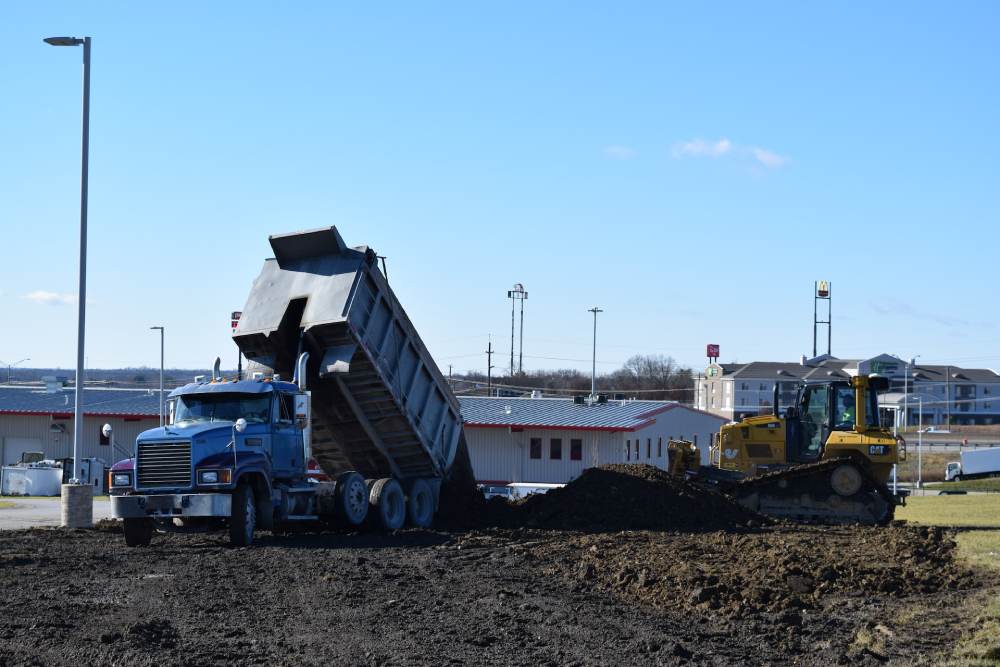Maximizing efficiency is a top priority for businesses across various industries. From construction and landscaping to waste management and agriculture, businesses need tools that can easily handle material handling and reduce labor costs. Side dump trailers are an excellent option for this purpose. They can also be customized to suit specific job sites or tasks, such as being equipped with back and side gates.
Convenience
Productivity is critical for success in construction, landscaping, waste management, and other industries. Whether hauling construction materials, transporting mulch or other landscaping products, or clearing out debris from a demolition site, dump trailers make a massive difference in how efficiently and quickly contractors can complete their work.
The key is choosing a dump trailer with the right features to suit your needs. For example, opt for one with ramp gates if you’ll use your trailer to transport wheeled equipment and machinery. These are lowered into place with the pull of a lever, making it easy to load and unload equipment from the trailer without straining your back.
Some campers also come with a scissor or telescopic lift, which can offer better stability and precision for heavier loads. A good quality dump trailer can help you take on more projects and serve more clients daily.
This can result in more significant revenue and a faster return on your investment. In addition, efficient transport and unloading can save you time, money, and fuel, reducing operational costs. With various sizes and capacities available, finding the perfect dump trailer for your business requires careful consideration.
Safety
The ability to quickly transport materials and waste between locations on the job site is an essential business function. It reduces the need for repeated trips in gas-guzzling dump trucks, minimizes material spillage during transport (adding to costs associated with cleanup or replacing lost assets), and allows workers to accomplish more daily.
However, as helpful as these trailers are, they can pose safety risks when improperly used or maintained. If a contractor doesn’t follow best practices when hauling and unloading debris, they could put themselves and others at risk. Using a dump trailer can efficiently transport materials like gravel, concrete, dirt, and landscaping supplies.
But before the trailer can be utilized, it must be inspected to ensure all equipment is secure and there are no safety hazards. Checking the tires before each use is critical to ensure proper air pressure and lug nuts that are not loose or damaged.
Additionally, it’s essential to plan out the schedule of when the dump trailer will be utilized. This will help to avoid unnecessary use and save on rental costs. For example, if you’re a construction company, consider scheduling the trailer during the demolition phase of a renovation project. This will allow you to complete more work during the week and boost productivity.
Efficiency
For businesses that depend on transporting bulk materials, like construction, landscaping, or waste management companies, efficiency is critical to meeting project deadlines and minimizing labor costs. Dump trailers streamline the unloading process by allowing workers to transport materials and equipment directly from their trucks to the worksite.
This eliminates the need to stop the car and re-hitch the dump trailer, reducing downtime and making it possible to complete more hauling rounds daily. Additionally, dump trailers are designed to facilitate precise unloading, which minimizes material spillage and waste.
This increased efficiency boosts productivity by reducing the need to make multiple trips and freeing up more time for workers to spend on other essential tasks. When selecting a dump trailer, consider the types and styles of materials you’ll be transporting and what features will enhance productivity on your job site.
For example, low-rider dump trailers feature beds that sit lower to the ground, making loading materials and equipment into the bed easier. Hydraulic dump trailers are also more maneuverable in tight spaces and over rough terrain.
Ramp gates help load wheeled equipment and machinery, and tarping systems protect cargo during transportation. It’s also essential to understand how the size of your dump trailer impacts performance. Larger trailers can accommodate more materials and equipment, but balancing size with maneuverability is critical when choosing a dump trailer for your business.
Flexibility
The ability to haul and unload bulk materials on demand is an essential asset for various businesses. This flexibility can save time and money by eliminating the need to schedule multiple trips and reducing the risk of material spillage during transport, which can require expensive cleanup and repair.
In addition, dump trailers are often lower to the ground than other vehicles or trailers, which makes it easier for employees to load and unload materials. This feature can also boost productivity by minimizing employees’ time to lift heavy materials above their head or chest, which could lead to back or shoulder injuries.
Several dump trailers exist, each designed to suit specific applications. For example, side dump trailers are popular in quarries and large construction sites for their speed and versatility. Likewise, end dump trailers are ideal for construction projects and aggregate stockpiling, with their high-sided designs capable of handling heavier loads.
Regardless of what type of dump trailer is chosen, it is critical to distribute the load evenly. Doing so will help prevent overloading, which can compromise performance and safety and may damage the trailer. In addition, a regular weigh station check can help businesses stay within capacity limits, essential for avoiding costly fines or equipment damages.



